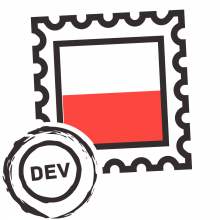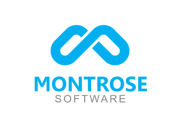Explore Top Angular Development Companies in Kraków
We are the innovative, competitive, and cost-effective alternative to the traditional digital marketing agency.
Services:
Hatimeria is an independent software agency with worldwide connections. Totally engaged people cover all ecommerce solutions.
Vimanet is a software development company specialized in web development and cloud applications. We work agile and focus on automating software delive...
We specialize in designing and building augmented teams of highly-skilled professionals for long-term collaborations.
Based in Poland - GMI is a custom software development company with more than 10 years of professional experience. Industries: #SmartCity #PropTech #...
GISonLine is one of the leading companies in the Polish geoinformation industry. Innovative products and services of the company are dedicated for spa...
100% referral-based, no-nonsense professionals
Agile software developers and consultants specialized in building end-to-end custom products. We provide cryptography, blockchain, data science, web a...
Softwarehouse | Mobile & Web | AI, AR, ML | UX Design | UI Design | SEO
Streamline Your Business Communication Solutions
#1 Software House CHECK US get free consultation
- 1
- 2
Filter Angular Development Companies in Cities near Kraków
Dive deeper and find the company you need close to you or, from a specific city you prefer. Some of the best companies come from smaller places
Find more Angular Development companies around the world
TechBehemoths is the world's most advanced and user-friendly platform to match IT Companies with real clients without hustle.
What is Angular and what are its benefits for your projects?
Angular (formerly AngularJS) is a popular open-source web application framework maintained by Google and a community of developers. It's used for building dynamic, single-page web applications (SPAs) and web-based applications in general. Angular provides a structured and organized way to create complex web applications by extending HTML with additional features and enabling the development of interactive, responsive, and maintainable front-end web interfaces. Here are some key aspects and concepts of Angular:
-
Component-Based Architecture
-
Templates
-
Directives
-
Dependency Injection
-
Services
-
Routing
-
Observable and RxJS
-
Modules
-
Testing
-
Cross-Platform
Angular's structured approach, strong tooling, and vibrant ecosystem of libraries and extensions make it a powerful framework for building modern web applications. It is particularly well-suited for large and complex projects where maintainability and scalability are crucial.
Companies may choose Angular over other front-end frameworks for their projects for a variety of reasons, depending on their specific needs and priorities.
-
Google Backing: Angular is developed and maintained by Google. This association often gives companies confidence in its long-term support, stability, and continuous improvement. Google's involvement is seen as a sign of reliability and commitment to the framework.
-
Mature and Established: Angular has been around for a while and has a strong track record of being used successfully in large-scale enterprise projects. It has a well-defined architecture and best practices, which can be beneficial for maintaining and scaling applications over time.
-
TypeScript Support: Angular is built with TypeScript, a statically-typed superset of JavaScript. TypeScript provides better tooling, code maintainability, and catches errors at compile time, which can reduce bugs and enhance code quality, making it attractive to companies that prioritize robust code.
-
Full-Featured Framework: Angular provides a comprehensive set of tools, libraries, and features out of the box, including routing, form handling, HTTP client, and more. This can save development time and effort compared to integrating multiple third-party libraries in other frameworks.
-
Two-Way Data Binding: Angular offers powerful two-way data binding, which allows for automatic synchronization between the data model and the view. This feature can make it easier to develop interactive and responsive user interfaces.
-
Large and Active Community: Angular has a large and active community of developers and a wealth of resources, including documentation, tutorials, and third-party libraries. This can be beneficial for finding solutions to common problems and getting support when needed.
-
Enterprise-Ready: Angular provides features like dependency injection, modularity through modules, and a strong emphasis on testability. These characteristics are well-suited for building robust and maintainable enterprise-level applications.
-
Strict Coding Standards: Angular enforces a set of coding standards and best practices, which can lead to more consistent and readable code. This can be important for companies with multiple developers working on the same codebase.
-
Cross-Platform Development: Angular can be used for building both web and mobile applications. Companies looking to develop applications for multiple platforms may choose Angular for its ability to share code between web and mobile apps using technologies like NativeScript or Ionic.
-
Integration with Backend Technologies: Angular can easily integrate with various backend technologies and APIs. This makes it suitable for projects where the front end needs to communicate with different types of server-side applications.
-
Security Features: Angular provides built-in security mechanisms to help prevent common web vulnerabilities like Cross-Site Scripting (XSS) and Cross-Site Request Forgery (CSRF). This can be crucial for projects with high security requirements.
-
Ecosystem and Tooling: Angular has a rich ecosystem of tools, extensions, and IDE support, including Angular CLI for project setup and management. This can streamline development workflows and improve productivity.
Ultimately, the choice of Angular or any other framework depends on the specific project requirements, the development team's expertise, and the company's long-term goals. Companies evaluate various factors to determine which framework aligns best with their needs, resources, and priorities.














